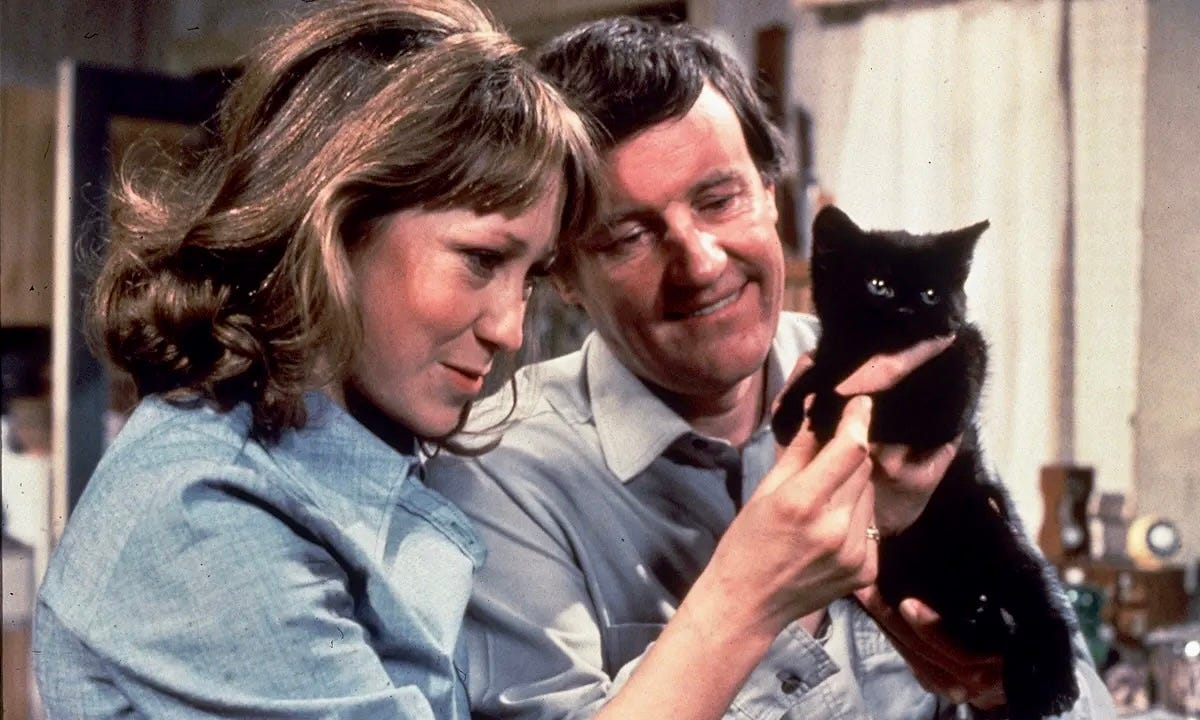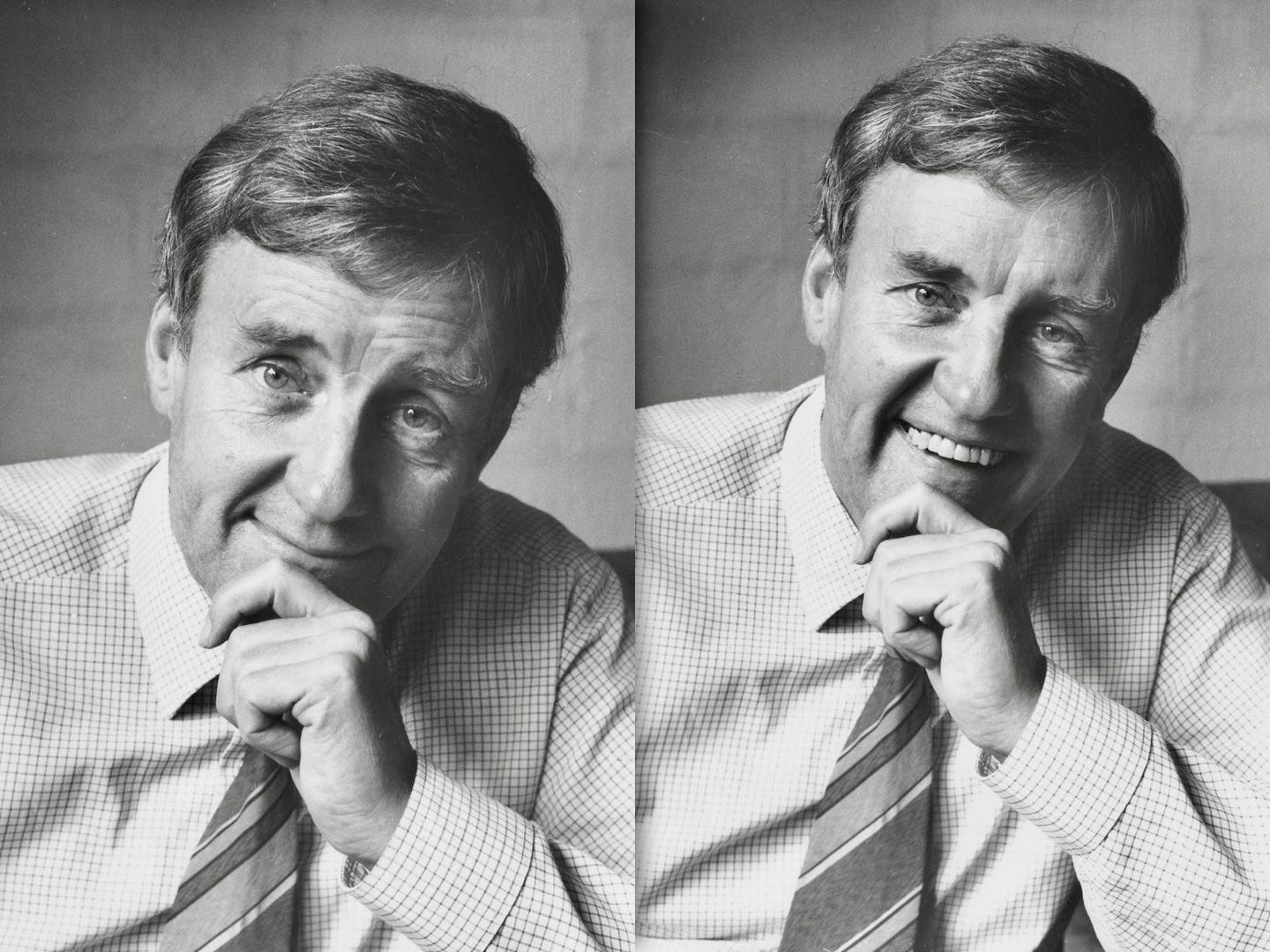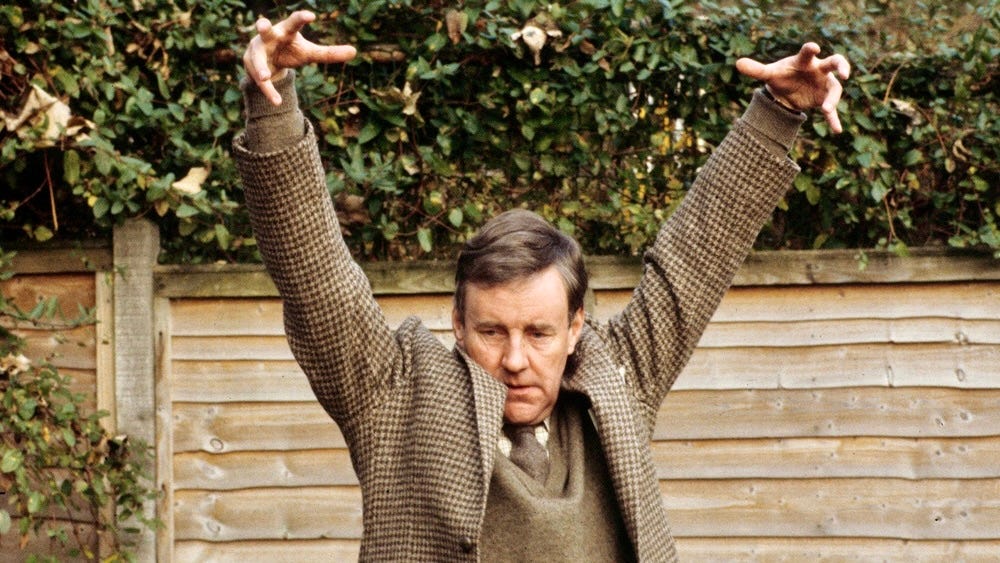A Good Life
Revisiting a lovely little chat with radiant Richard Briers.

Describing a cherished performer as a Beloved British Institution is such a hoary old cliché, but damn it all, Richard Briers was such an integral part of the nation's TV life for so many decades, the phrase surely fits. With his smiley, familiar face, full of cheek and character, he was no less an institution than the Queen, or David Attenborough even, and no less beloved, or welcome, than a favourite uncle.
I was lucky enough to interview him twenty years ago, a decade before he passed away, and he was as sparky, warm and kind as I'd always imagined he would be. Nostalgic too, having recently turned 70, and happy to reflect on his life and long career.
“It suddenly goes, you know," he told me. "Do enjoy yourself while you can, because it does go.”
Those years, though, were full of wonderful things. "Yes, I was able to turn my hand to almost everything,” he said with due pride. “From Roobarb And Custard to King Lear is a nice wide range.”
Back to the beginning, then. “Up until my mid-twenties life was really rather depressing. My father was a rolling stone. He had lots of different jobs, but mainly stuck to bookmaking. My mother was very keen on music. She played the piano but was never able to make much of her gifts. We were very poor.”
Briers’ schoolwork suggested he always would be. “My parents worried a lot about me as academically I was a complete fiasco. A total dunce because I never listened.”
His teachers may have failed to reach him, but the Hollywood greats were harder to ignore. "I was brought up in the back bedroom of a small first floor flat looking out on the back of the Rialto Cinema in Raines Park. I could hear Bogey, Cagney, Tracy - all the giants. I couldn’t quite hear what they saying but I recognised their voices and every night they’d lull me to sleep.”
Dreaming of stardom, Briers turned to acting. “I was always showing off at school, joking and mimicking. It built my ego, which is crucial for any actor. Dustin Hoffman once asked Laurence Olivier, ‘What’s your motivation for acting?’ And he replied, ‘Look at me, look at me, look at me!’
"When I started doing amateur work at 14 I never thought of anything else. I was slung out of school at 16 and became a clerk, which was alarming, and then came National Service, which was a terrible bore.”
Returning to acting with limited success, Briers found a friend in second cousin Terry-Thomas. “He was a wonderful character. A middle-class boy from Barnet, but he spoke in that extraordinary way. The funny thing about Terry was that once he found that character he never, ever dropped it, on screen or off.
"We’d see him once a year and he was always very nice. He came with my mother and father to see me in a very light comedy, a rather vacuous play I was doing in the West End, and during the interval my father asked him, ‘What do you think? How long do you think this’ll run?’ And Terry said, ‘What’s the time now?’”
Regardless of the show, Thomas saw potential in his young cousin and encouraged him to study his craft. “He said, ‘I think you’ve got something. I’m not absolutely sure what it is, but I think you ought to go into training.’ I scraped into R.A.D.A. and every term I took another step. I never soared anywhere. I just got better each year. Learning your craft is the nature of any job. I got very good at acting because I was able to act, virtually continuously, for forty-five years out of forty-six-and-a-half.”
Despite his reputation as the nicest guy on the telly, Briers is best known for his gits, from self-sufficiency tyrant Tom in The Good Life (1975-1978) to by-the-book bore Martin in Ever Decreasing Circles (1984-1989). “Tom was a terrible person. Obsessive, selfish… He and Barbara had no kids, she had no clothes, and they never went on holiday. Give me Margo, thank you very much. I always felt so sorry for her. I wouldn’t want to live next door to that bastard.
“As for Martin, he was an absolute menace. One of the writers told me they thought of him after seeing this guy refereeing an amateur football match on Clapham Common. He was this really officious little sod, always shouting and telling people off. When the match was over everyone ran away from him to the pub, and he was left behind yelling, 'Fellas, wait for me’. That was Martin all over.
"When I was offered the role, writer Bob Larbey said, ‘We’re going to get you to do this if you will, as you’re the only person we know who is likeable enough to get away with playing this appalling little fart!’”
Flawed as they were, With Briers at the helm, Tom and Martin remained decent, likeable blokes. Only once did Briers play a truly bad man, a career move he swore never to repeat. “I played a ghastly character in a Morse once, and countless people came up to me afterwards to say, ‘Please don’t do that again’. They were right, too.
After that, if I wanted to play someone nasty, I did it on the stage as that was private - nobody goes to see you in Shakespeare - but on television you don’t want to disappoint 10 million people.”
What’s your favourite Richard Briers performance?




